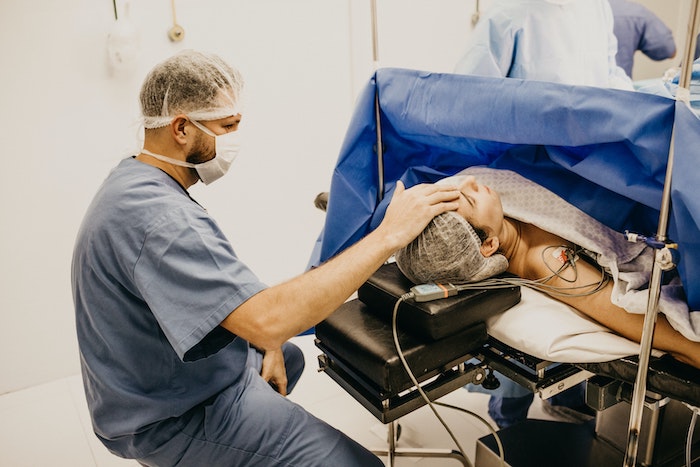What to Do If You Think You’re a Victim of Medical Negligence

Most people hope or expect to receive quality healthcare when they are ill or injured. Unfortunately, accidents do happen from time to time and sometimes they are a result of negligence from medical practitioners.
A nurse, doctor, or even orderly can make a mistake that may cause a patient to become injured or ill. In some cases, complications from, say, a botched operation, may lead to permanent health damage or even the death of the patient.
If you or someone you loved has become ill, injured, or even died as a result of what you think is a case of medical ineptitude, then you should file a medical malpractice lawsuit as soon as possible.
While medical malpractice cases can be challenging to resolve, a dedicated legal team can help you get the legal redress and justice you want.

Here’s what you should know about and do if you believe you are the unfortunate victim of medical negligence:
What can be treated as medical negligence
If you were injured or harmed as a result of a medical intervention, then your case may be treated as medical negligence. Your situation may also be considered a medical negligence case if a duty of care (DOC) was owed to you.
Moreover, if a violation of the DOC happened due to a failure to act, or as a result of a direct action, then your case may be treated as medical negligence.
In truth, there is no one-size-fits-all solution that can be applied to your situation. Medical errors will need to be investigated on an individual basis. If you are not certain as to whether or not your case qualifies, you should get in contact with a reputable legal team in your area.
The legal counsel you get should help you take the appropriate legal course of action with the best chance of a successful outcome for you.
Medical malpractice cases’ “4 Ds”
A medical malpractice claim must prove the existence of four key factors (the “4 Ds” of medical malpractice are these elements) to succeed.
1. Duty is first.
All medical providers, including nursing home staff, surgeons, nurses and general practitioners owe a duty of care to those that they care for. The nature of their duty is contingent on the type of treatment they are hired to provide their patients, as well as the individual role of the medical personnel.
2. Deviation from the standard of care.
In order to establish a standard of care, a relationship between the patient and the medical expert needs to be fostered. As for the standard of care itself, it refers to the quality and type of care that would be provided by a medical practitioner of the same status as the medical practitioner who actually provided the medical care.
In other words, what course of treatment would a qualified and dedicated caregiver, nurse, or surgeon have provided under the same or similar circumstances? A deviation from this standard of care may be considered a form of medical negligence.
3. Damages.
That is, you need to provide proof that the inaction or action of the medical personnel that was responsible for your treatment resulted in real damage to your mental and/or physical health and wellbeing. In addition to mental and physical damage, the damages incurred may also be financial and/or emotional in some cases.
Examples of real damage may include punitive damages, mental anguish, immense pain and suffering, future medical costs, loss of familial support, lost wages, physical therapy, mental health treatment and loss of enjoyment of life.
4. Direct cause.
The injured party must prove without doubt that the negligence of the medical expert was the direct cause of the damages that they sustained. In some cases, proving direct cause is an open and shut case. For example, if a surgeon amputated the wrong appendage, then proving direct cause will be quite easy. In other cases, proving causation may be far more difficult.
A doctor may provide a course of treatment that they felt would best help treat the patient, leading to great harm. In such a case it would be hard to prove that their decision constituted a standard of care deviation instead of an error that could not be avoided.
Common signs of medical malpractice

More signs of medical malpractice include failure to follow through with care, receiving a diagnosis that has been postponed, as well as failure to provide additional testing.
While different medical experts may have different opinions on how to best treat a patient, in medical malpractice standard tests may not be ordered to properly diagnose the patient, and the input of the patient may be ignored.
A medical facility being short-staffed may also suffice, and if the patient’s situation does not improve or becomes even worse, then the patient may be able to claim medical malpractice.
Factors to prove medical negligence
You need to prove that you and the facility or person who provided your healthcare had a healthcare provider/patient relationship. Furthermore, the healthcare provider and hospital must have also had a duty of care towards you.
You must also prove that this duty of care was breached or violated by your doctor, surgeon, hospital and/or nurse. You also need to prove that the breach was the direct cause of the harm that you sustained.
In conclusion
A medical malpractice claim will not succeed if the medical negligence of the medical personnel was not foreseeable as a result of the damages that you suffered.
Your claim will also fail if your doctor’s negligence had no damaging effects on your condition; the link between causation and damages needs to be clear and well established.
Ultimately, if you think you are a victim of medical negligence, it is highly advisable to consult with a qualified medical malpractice attorney ahead to help you build a strong, credible case that’ll succeed in a court of law against those who have wronged you.













![9 Tips for Managing Your Online Writing Projects Efficiently [node:titile]](/sites/default/files/styles/video_thumbnail_bottom/public/open-book-laptop-online-writing-tips.jpeg?itok=rI4zR3a-)





![How Music Benefits Your Brain, Heart, & Physical Health [node:title]](/sites/default/files/styles/video_thumbnail_bottom/public/American%20woman%20enjoying%20music%20in%20headphones.jpeg?itok=gXymemvl)
